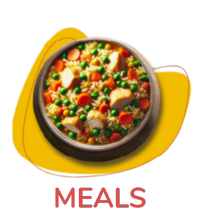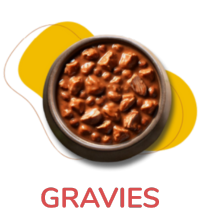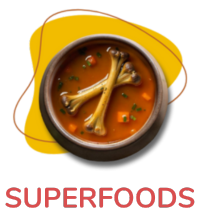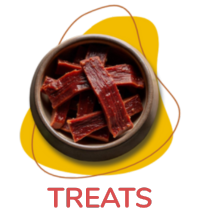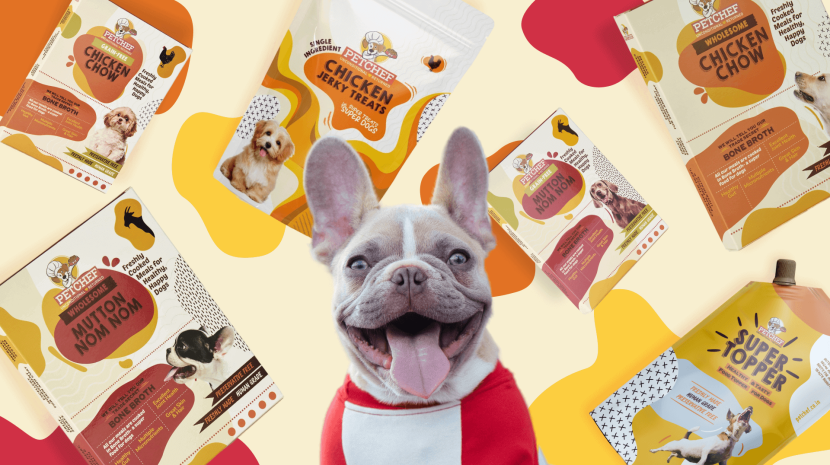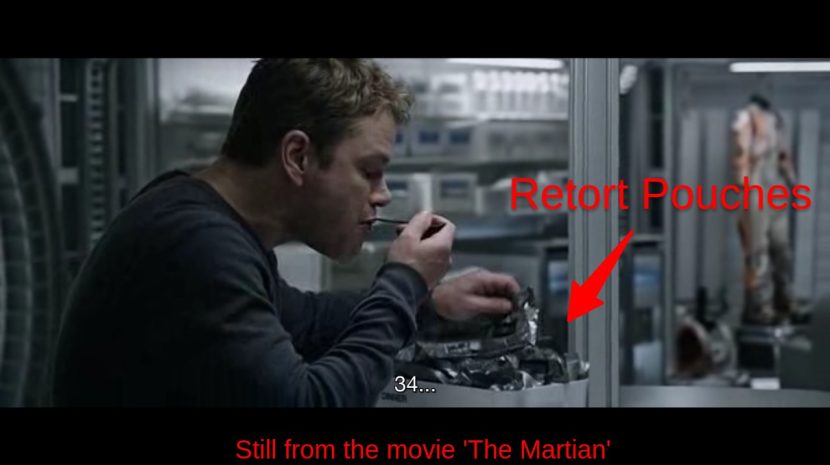We’ve all had injuries big and small: a scratch, a cut, a bump, etc. Even going under the knife for any number of reasons leaves us with surgical wounds that take time and care to heal. Sadly, our four-legged furry friends are as vulnerable to these injuries as we are. Whether they bumped into something during their daily walk or were too engrossed playing catch to prevent that fall,your doggo can hurt themselves pretty easily, causing them physical pain as well as mental trauma. To avoid both your pooch and you the added stress of injuries, their body needs to be well-equipped to deal with wounds and accomplish a speedy recovery. And since anything related to your doggy’s body ties in closely with their diet, the process of wound healing is no different. It is a fact well-proven that for canines, after their early growing up years, the time of recovery following an injury is the most nutritionally demanding phase of their life.
But before we plunge into the vast world of dog-friendly foods that help in healing their wounds, let us first list down some of the factors that may prevent or slow down recovery:
- Anaemia
- Infection
- Age
- Stress
- Malnutrition
- Obesity
- Medications (especially those with anti-inflammatory effects)
Even as your pet’s wound-healing gets affected due to the presence of these obstacles, you can still focus on feeding them a diet that will not only enable but also encourage a speedy recovery. You can think of it like this: when wounded, your pup’s body needs to put in extra effort in order to get back into shape. So a pro-healing diet is the bonus your doggy’s body more than deserves for working overtime.
Let’s think of such a healing-friendly diet as a ‘recovery diet.’ Ideally, it should be:
- high in protein to make and maintain a lean body mass
- high in fat and carbohydrates that are used as energy sources
- easily digestible to aid smooth nutrient absorption
- high in energy (superfoods that help in obtaining stamina even when consumed in small quantities)
- filled with micronutrients like vitamins, minerals, etc.
- aromatic and appetising to get your pet to eat more
Looking for a recovery diet? Check out this complete guide to the PetChef Kitchen
Now that you’ve gained a rough idea of a ‘recovery diet’, let us look at some foods that will help you achieve the same.
-
Poultry & Dairy Products: There’s no denying the fact that when it comes to proteins, animal sources are the preferred choice. Animal-derived proteins are considered first class as compared to the plant-based ones. Proteins form the backbone of the wound-healing process in your pet’s body which requires them to build, repair and replace torn muscles,broken skin and other needy tissues. Proteins also help carry oxygen which prevents wounds from getting infected and promotes capillary reformation. These capillaries are needed to transport nutrients, immune cells and oxygen itself to the wound site. Most protein rich foods are also high in glutamine which provides energy to wounded and healing cells. Apart from being great sources of protein, (chicken) organ meat, eggs and dairy products like milk and cheese are rich in Omega-6 fats which plays a role similar to that of protein in wound-healing.
Tip: Make sure to check for lactose-intolerance in your pet before feeding them anything fresh from the dairy. - Fish, Leafy Greens, Seeds: These foods will prove an excellent source not only of Omega-3 fatty acids which prevent inflammation but also Omega-6 which promote it. Striking a balance between the two is essential because some amount of inflammation is needed for wound-healing (it sets the healing process into motion), but too much of it can delay wound-closure, leading to excessive scarring. Including foods rich in both Omega-3 & 6 like oily fish (sardines, salmon), seeds (chia, flax) and leafy vegetables (spinach, broccoli, lettuce) in your dog’s diet seems like the done thing. Leafy greens are also one of the best sources of obtaining Vitamin K which is essential for blood clotting.
-
Brown Rice, Carrots, Sweet Potatoes: These are all delicious as well as nutritious carbohydrates that are just as essential for your four-legged friend during recovery as the other nutrients. This is so because glucose, the sugar into which carbs break down during digestion, is converted into ATP which is the primary source of energy for cells busy in self-repair and re-growth. Apart from being high in carbs, sweet potatoes and carrots are also a good source of Vitamin A which is crucial for forming new blood vessels, connective tissue and skin (thus reducing scar formation).
Tip: Avoid giving your pet brown rice (which is more nutritious than the white one) in case they suffer from diarrhoea or gut issues.(find out how fiber helps deal with gut issues) - Citrus Fruits, Papayas, Pumpkin: These fruits come with a long list of vitamins and minerals (micronutrients) in them that hasten recovery from injury. Topping the list is the Vitamin C which is crucial at every stage of healing from the initial inflammation to the production and synthesis of collagen. Low levels of this vitamin lead to a delayed immune response, thus increasing the risk of infection. Papayas and pumpkins in particular also offer a high dose of the Vitamins A and E whose antioxidant properties promote a healthy cell membrane and reduce inflammation.
- Coconut, Quinoa, Peanuts : All these are reliable sources of trace minerals required by your pooch’s body on a general basis and especially during the crucial time of wound healing. Some of the important minerals found in these foods are iron, copper, zinc, magnesium, etc. All of them will hasten the healing process in one way or another. Coconuts and peanuts are also high in fat which should be taken into account if your dog is (borderline) diabetic or obese. Both these foods can be given as treats to your doggo whose body will make use of the fats to produce and preserve energy, thus freeing the proteins in their body to focus on their most important job: repair and rebuild damaged tissues.
Here, at PetChef, we can imagine just how stressed you must be seeing your beloved dog hurting. We understand how, as pet parents who hate seeing their dog in pain, you must yourself feel hurt by the situation and in need of some (mental) respite. We know of no better way of helping you than by offering our four differently flavoured Meals made with the choicest ingredients like (chicken and mutton) organ meat, pumpkin, carrots, brown rice, sweet potatoes, etc. As you just read above, all these support wound healing by contributing the various micro/nutrients necessary for it. Our Meals are cooked in bone broth that is bursting with amino acids, collagen, glutamine, etc. making it one of the canine superfoods. You can also treat your furry friend with our 24-hour Bone Broth which is available as a separate PetChef product, considering bone broth’s uncountable health benefits. In case you wish to feed your doggo home-cooked food, you can try our Supper Topper, made of delicious chicken organs (heart, liver, gizzard)—all powerhouses of protein. If you’re on the lookout for a suitable snack for your injured doggy (whose appetite has sadly but understandably been low) consider the mouthwatering Chicken Jerky Treat whose single ingredient (chicken breast) is one of nature’s best sources of lean protein. Moreover, it also contains trace amounts of vitamins A, C, zinc and iron. Feeding your doggy these foods that have been heartily prepared inside PetChef’s hygienic kitchen will help your pet bid those nasty wounds adieu sooner rather than later.

